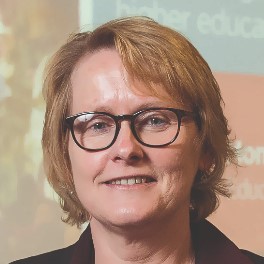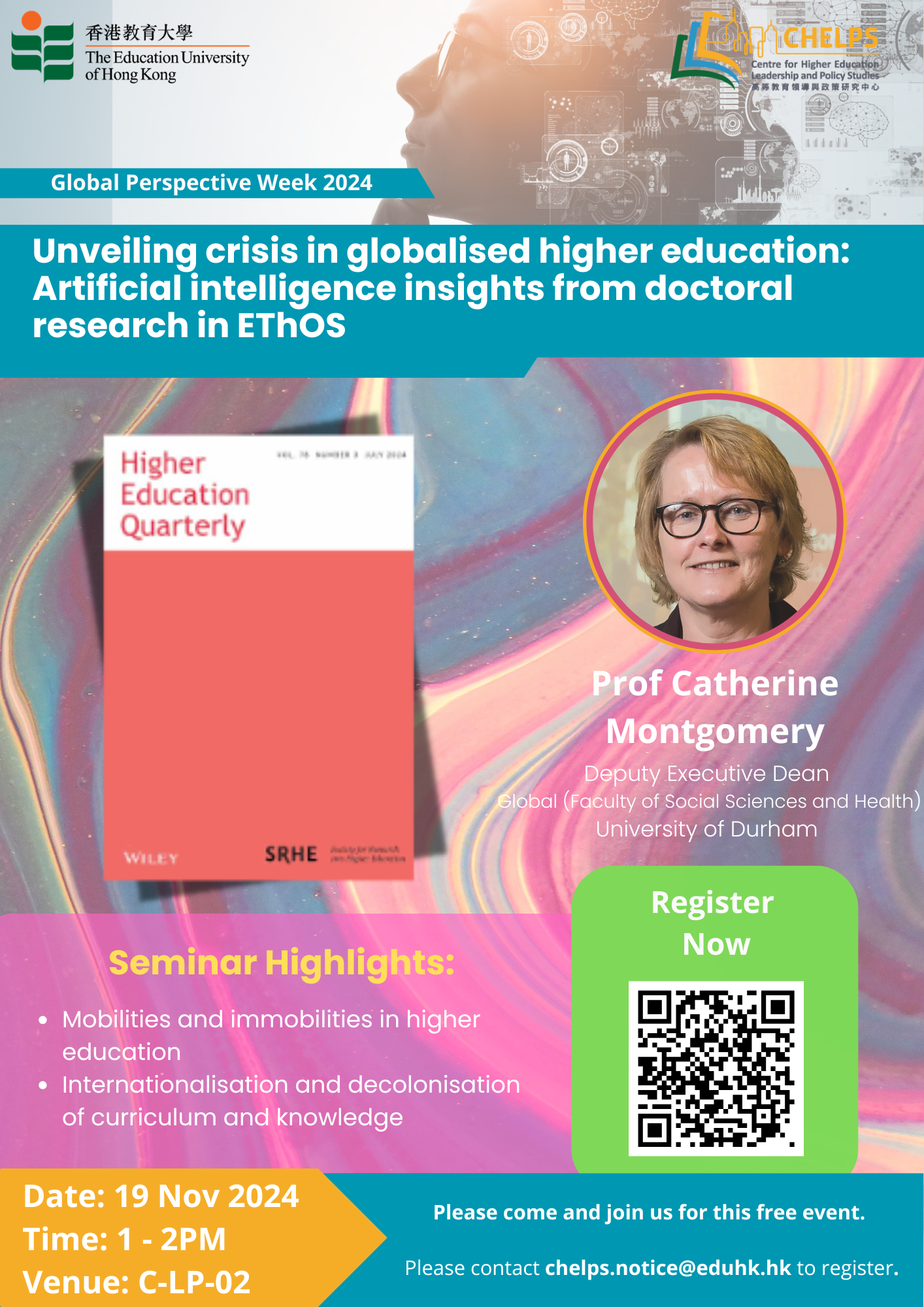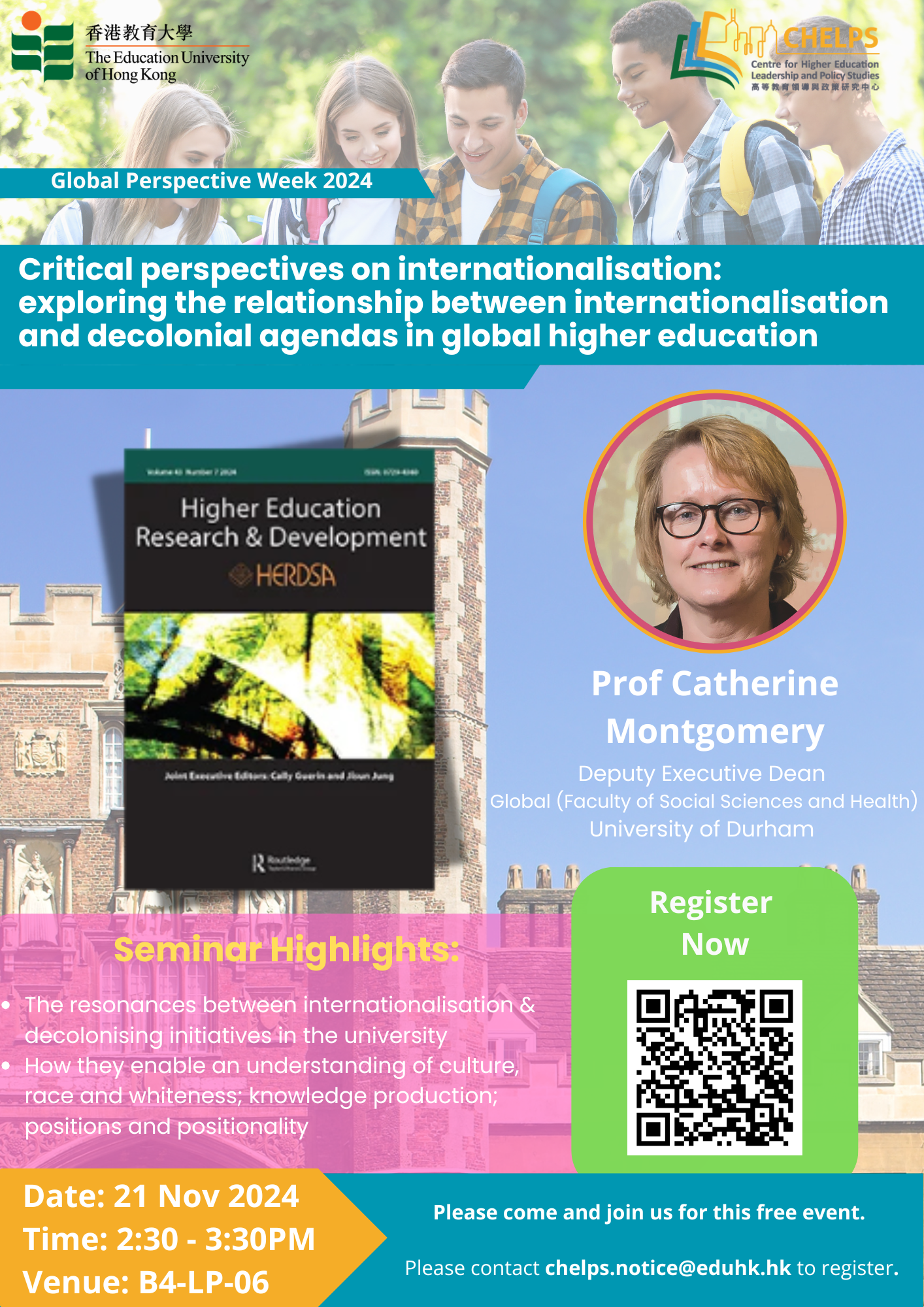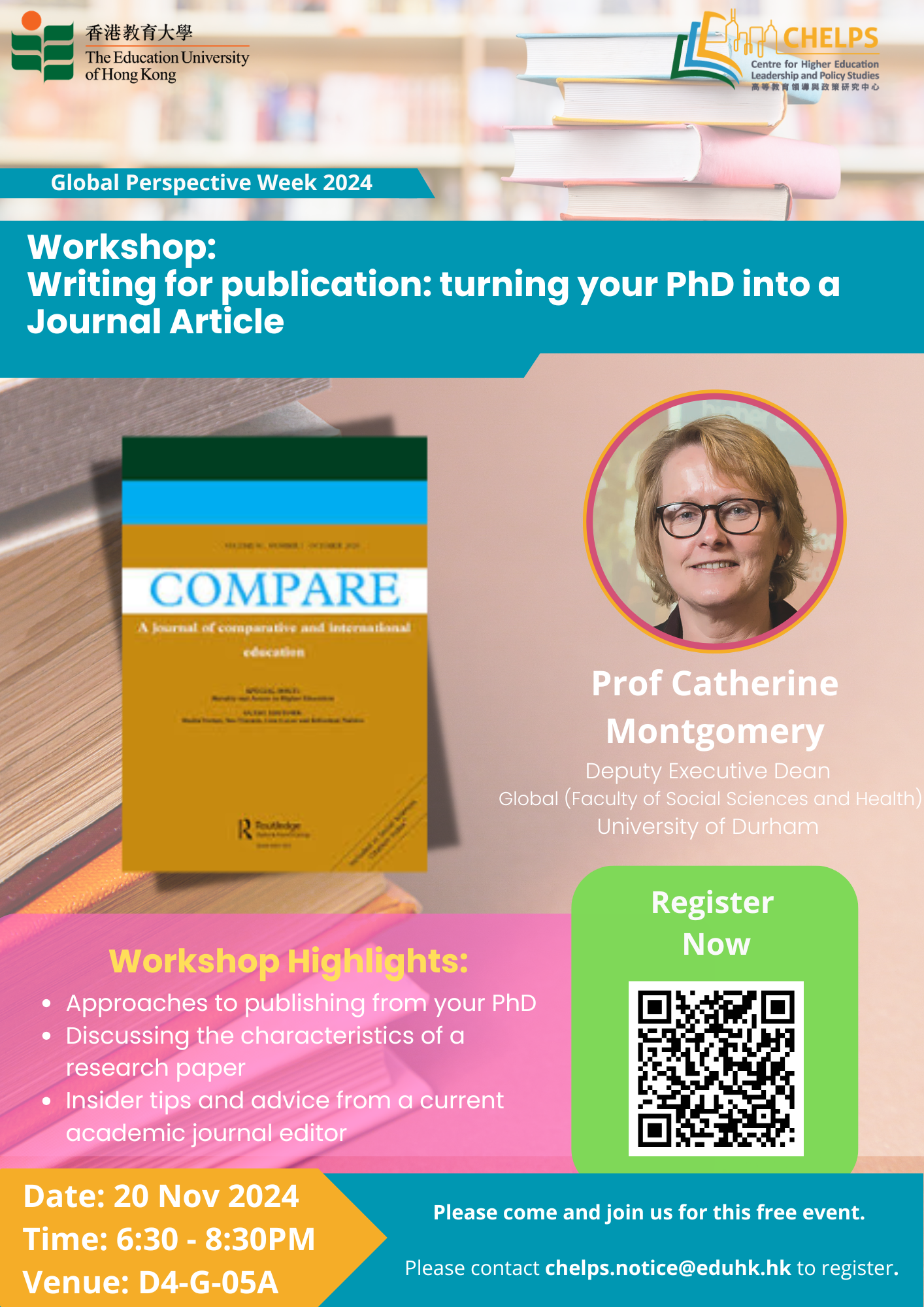Register Here
(只有英文版本提供)
Introduction: Professor Catherine Montgomery
Catherine Montgomery is Professor of Education and Deputy Executive Dean Global in the Faculty of Social Sciences and Health at the University of Durham.
Catherine’s research focuses on mobilities and immobilities in higher education and the internationalisation and decolonisation of curriculum and knowledge. She is also interested in the flows of international students and what this can tell us about the changing landscapes of global higher education. She has published widely in these areas. Catherine is currently focusing on the impact, development and history of doctoral research as knowledge mobility.
Prior to joining Durham in September 2019, Catherine held professorial posts at the University of Bath and the University of Hull, both with a focus on international higher education. At the University of Bath, Catherine was also Academic Director for International Partnerships, and she was also the former Director and founder of ‘Centre for Research in Education in China and East Asia’ at the University of Bath.
Catherine holds a visiting professorship at the Centre for Higher Education Internationalisation at the Universita Cattolica del Sacro Cuore in Milan, Italy; she is an affiliated international expert for Monash University’s China Research Network; she is an invited Fellow of the Royal Society of Arts (FRSA 2018) and she was awarded a UK National Teaching Fellowship in 2010.
Catherine is the Editor of a successful journal: Compare: a Journal of International and Comparative Education.

Research Presentations
Suitable for Masters, PhD students and staff
1. Unveiling crisis in globalised higher education: Artificial intelligence insights from doctoral research in EThOS – 19 NOV 2024
This session seeks to illuminate new perspectives on the concept of crisis in globalised higher education (HE) by focusing on knowledge generated by doctoral research. Doctoral research is a significant part of research and knowledge building in HE, particularly in science, and doctoral students contribute to the research capacity and knowledge building of institutions. This source of knowledge offers alternative perspectives on crisis in HE, providing a rich source of research which is often under-consulted. Using the British Library's digital repository EThOS, a collection of around 637,000 doctoral studies carried out in British universities, the research harnesses Generative Artificial Intelligence approaches in order to analyse the ways in which crisis is defined and constructed in doctoral research since 2000. Through a pilot study using a prototype of a new AI tool, the paper offers both conceptual and methodological insights into constructions of crisis in this under-used field of research.
Published paper: Montgomery, C., Stewart, C., Aduragba, C. and Poli, F. (2024). Unveiling Crisis in Globalised Higher Education: Artificial Intelligence Insights from the Doctoral Research of EThOS. Higher Education Quarterly. https://doi.org/10.1111/hequ.12537

2. Critical perspectives on internationalisation: exploring the relationship between internationalisation and decolonial agendas in global higher education – 21 NOV 2024
In this discussion-based session we will consider the resonances between internationalisation and decolonising initiatives in the university. Using a discursive approach embedded in literature in the field, based on a co-authored publication (see below) and acknowledging my position a as white, British, female, privileged scholar of the Global North, we will discuss the parallels between these two strong initiatives. By taking a critical stance on internationalisation, many resonances and opportunities for learning across the two agendas can be uncovered and there is potential strength and solidarity in outlining the ways in which these two agendas can be mutually supportive. We will consider how setting internationalisation and decoloniality alongside each other may enable an understanding of culture, race and whiteness; knowledge production; positions and positionality which could inform ways forward for both agendas. Through the reflexive conversations both during the session and from the conversations in the published paper, we will consider the ways in which internationalisation may perpetuate coloniality and yet how it can advance the decolonial possibilities of higher education, suggesting that the circularity may be broken by learning to unlearn and finding a common language between the two agendas.
Published paper: Montgomery C. and Trahar, S. (2023). Learning to unlearn: exploring the relationship between internationalisation and decolonial agendas in higher education. Higher Education Research and Development, pp. 1057-1070 https://doi.org/10.1080/07294360.2023.2194054

Workshop
Suitable for PhD students and Early Career Researchers only
Writing for publication: turning your PhD into a Journal Article – 20 NOV 2024
This 2 hour workshop will focus on approaches to publishing from your PhD. Turning your PhD into a journal article might seem straightforward at first but there are some complexities involved, including the different genres and characteristics of the two forms of writing and the processes and requirements of the journals. In this session we will consider these complexities and discuss approaches to publishing articles from your PhD material.
We will begin the workshop by discussing the characteristics of a research paper. To prepare for this, some advanced reading material will be sent to you and we will ask you to have a look at a thesis and a research paper by the same author and about the same topic. These are actual examples of a ‘real’ PhD which was then used to publish an article.
In addition to this, you could come to the workshop prepared to discuss some writing you are working on or planning. If possible, you could bring an extract of your writing with you to discuss on the day. This could be anything from the abstract for your PhD or an article or other publication you are working on.
Finally, I will give you some insider tips and advice from the point of view of a current academic journal editor (my journal is Compare: a Journal of International and Comparative Education). We will discuss what editors and reviewers look for in an article.

請聯絡高等教育領導與政策研究中心以了解活動詳情。
電郵: chelps@eduhk.hk
網頁: www.chelps.eduhk.hk

